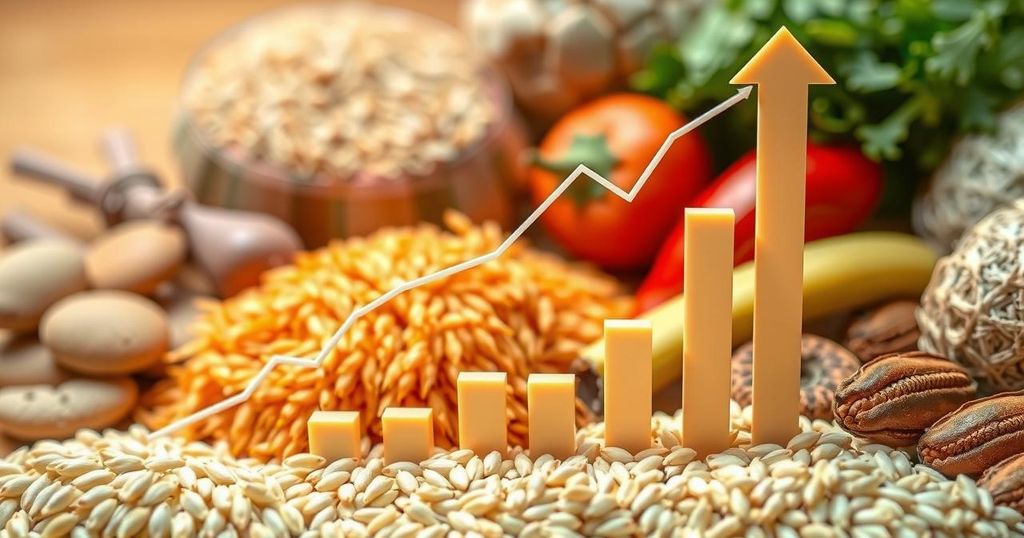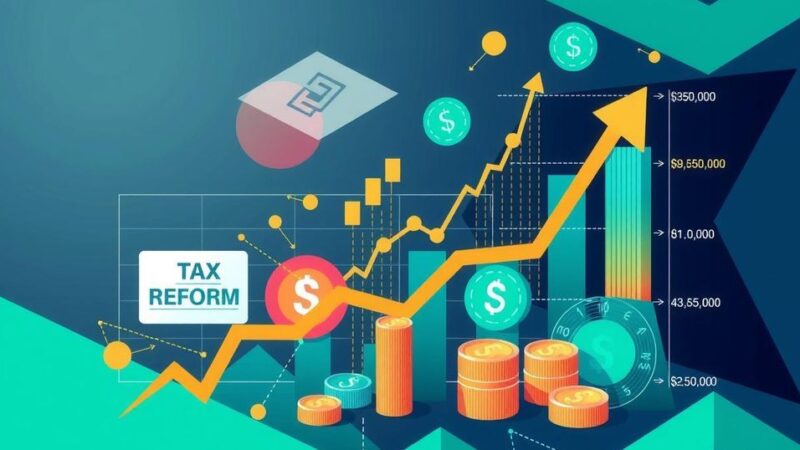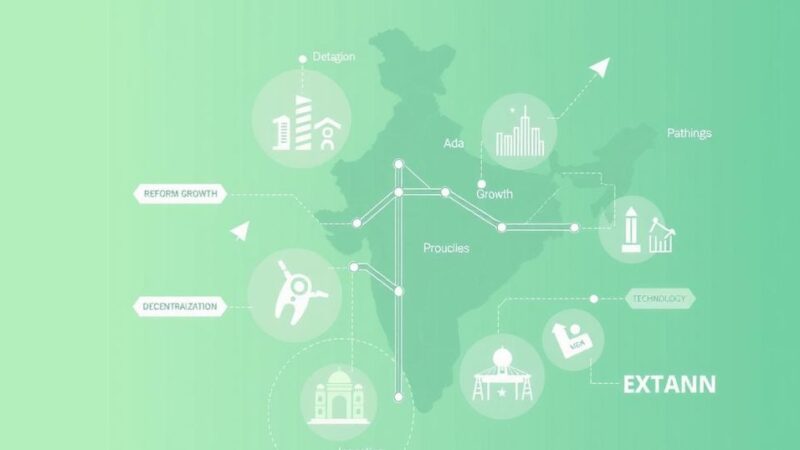Tanzania’s inflation rose to 3.2% in February 2025, driven by higher food prices, including significant increases in staples. The Consumer Price Index increased by 0.6%. Fuel prices also surged, alongside calls from officials to maintain price stability during Ramadan.
Tanzania has experienced a slight uptick in its inflation rate, rising to 3.2 percent in February 2025 from 3.1 percent in January. This increase is primarily driven by escalating food prices, according to data released by the National Bureau of Statistics (NBS).
Key staples have seen notable price hikes; rice rose by 3.8 percent, finger millet grains by 10.1 percent, maize grains by 1.8 percent, sorghum flour by 4.0 percent, maize flour by 2.6 percent, and fresh beef by 0.8 percent. In total, the Consumer Price Index (CPI) increased by 0.6 percent between January and February, indicating inflationary trends.
Other food products also witnessed price increases, including cooking oil (2.4 percent), fruits (2.6 percent), groundnuts (4.9 percent), vegetables (1.3 percent), potatoes (2.5 percent), sweet potatoes (2.9 percent), dried beans (3.5 percent), dried lentils (2.0 percent), cowpeas (3.7 percent), and cassava flour (1.4 percent).
The rise in food prices has been partly linked to increased demand with the onset of Ramadan, which influences food consumption habits due to daily fasting and evening feasts. Prime Minister Kassim Majaliwa has urged traders to refrain from unjustifiable price hikes during this period.
In addition to food, inflationary pressures are also present in the energy sector. The Energy and Water Utilities Regulatory Authority (Ewura) has announced new fuel price caps for March, which reflect substantial increases in the cost of petrol, diesel, and kerosene.
Petrol prices in Dar es Salaam rose to Tsh2,996 ($1.03) per litre, a 6.27 percent jump from February’s Tsh2,820 ($0.97). Diesel prices jumped to Tsh2,885 ($0.99) per litre, a 6.73 percent increase, while kerosene saw the largest rise at Tsh3,036 ($1.05), marking a 12.02 percent surge from Tsh2,710 ($0.94) last month.
Ewura’s Director General, James Mwainyekule, has attributed these fuel price increases to fluctuations in the global fuel market and currency variations.
Tanzania’s inflation rate has slightly increased, primarily due to rising food prices, with significant gains observed in staple products. A notable demand surge associated with the Ramadan period has contributed to these price increases. Concurrently, energy sector inflation is evident with rising fuel prices attributed to global market trends. Authorities have urged price stability to mitigate further inflationary pressures.
Original Source: www.zawya.com






